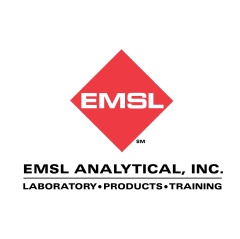Identifying and Preventing Occupational and Environmental Exposures to Gasoline
EMSL Analytical, Inc. provides testing service and sampling supplies to identify potentially hazardous substances and vapors to protect workers and the public.
As recently as two years ago, the U.S. Energy Information Administration reported that over 140 billion gallons of gasoline were consumed in the United States. As a fuel, gasoline is used to power everything from cars, boats, trucks, lawn mowers, recreational vehicles and generators. Gasoline can even be used as a solvent.
A number of chemical additives are often added to gasoline to prevent engine knocking, increase octane ratings, reduce pollution and for other purposes. In many parts of the country, ethanol is also added.
In addition to concerns over greenhouse gases and particulate matter produced from using combustion engines powered by gasoline, exposure to gasoline and its vapors is also a potential health issue. The Agency for Toxic Substances & Disease Registry (ATSDR) reports that in addition to the fact that inhaling or swallowing large amounts of gasoline can cause death, “Inhaling high concentrations of gasoline is irritating to the lungs when breathed in and irritating to the lining of the stomach when swallowed. Gasoline is also a skin irritant. Breathing in high levels of gasoline for short periods or swallowing large amounts of gasoline may also cause harmful effects on the nervous system. Serious nervous system effects include coma and the inability to breathe, while less serious effects include dizziness and headaches.”
Tox Town, a website hosted by the U.S. National Library of Medicine, states, “Inhaling or swallowing small amounts of gasoline can cause muscle weakness, cramps, dizziness, nausea, vomiting, diarrhea, headache, confusion, disorientation, slurred speech, feelings of intoxication, irregular heartbeat, insomnia, irritation of the stomach lining, and swelling and irritation of the nose and throat. Direct eye contact with gasoline may cause permanent eye damage.”
“Workers in some occupations and industries could be at increased risk of exposure hazards to gasoline,” said Joe Frasca, Senior Vice President of Marketing at EMSL Analytical, Inc. “NIOSH does list gasoline as a potential occupational carcinogen. At EMSL, we offer comprehensive industrial hygiene and environmental testing services to identify these types of exposure risks. These services are instrumental for protecting workers from occupational hazards and for keeping companies in regulatory compliance.”
EMSL also recently sponsored an educational video about occupational and environmental exposures to gasoline that can be seen at: https://www.youtube.com/watch?v=TeNVnhBjaTE.
To learn more about this or other occupational, environmental, air quality, health and safety testing services, please visit www.EMSL.com, call (800) 220-3675 or email info@EMSL.com .
About EMSL Analytical, Inc.
EMSL Analytical, Inc. is one of the leading testing laboratories with over 40 locations throughout the United States and Canada. EMSL is a nationally recognized and locally focused provider specializing in fast laboratory results for mold, bacteria, Legionella, USP 797, pathogens, asbestos, lead, soot, char & ash from fires, VOC’s, odors, radon, formaldehyde, indoor air quality, microbiology, environmental, industrial hygiene, radiological, food, beverage & consumer products and material testing services for the identification of unknown substances. EMSL services both professionals and the general public. EMSL maintains an extensive list of accreditations from leading organizations as well as state and federal regulating bodies including, but not limited to A2LA, AIHA LAP, LLC. (AIHA EMLAP, AIHA IHLAP, AIHA ELLAP), NVLAP, CDC ELITE, CPSC, CA ELAP, NY ELAP, TX DOH, NJDEP and multiple other state accrediting agencies. Please visit our website at www.EMSL.com for a complete listing of accreditations. In addition, EMSL carries a wide range of Sampling Equipment and Investigative Products for environmental professionals.
( Press Release Image: https://photos.webwire.com/prmedia/9645/208188/208188-1.jpg )
WebWireID208188
- Contact Information
- Joseph Frasca
- Senior Vice President of Marketing
- EMSL Analytical, Inc.
- (1) 856-303-2503
- Contact via E-mail
This news content may be integrated into any legitimate news gathering and publishing effort. Linking is permitted.
News Release Distribution and Press Release Distribution Services Provided by WebWire.

